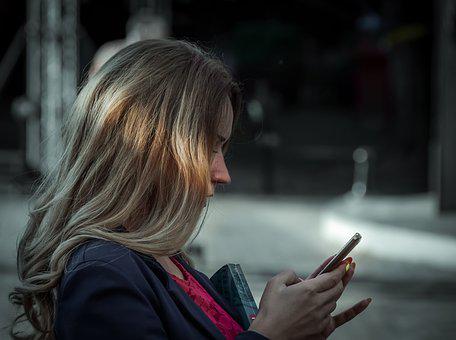Why You Can't Put Your Phone Down
The level of US grown-ups who say they utilize their cell phones "to an extreme" has expanded as of late, ascending from 39% in 2015 to 58 percent today, as per another Gallup study. Specialists say this is on the grounds that our minds are wired to like cell phones. Cell phones "have similar compound response in the mind as medications and liquor. Getting "preferences" and warnings from your telephone discharge dopamine, which encourages us, and thus, we need to rehash these vibe great ways of behaving," Melissa Huey, a teacher of conduct sciences at New York Institute of Technology who concentrates on the effect of cell phones on youthful grown-ups, told Lifewire in an email interview. "We make a habit-forming and unending cycle," Huey proceeded, "where we're continually taking a gander at our telephone to feel quite a bit improved. Nonetheless, when we don't get preferences or notices, we feel discouraged and desolate, which makes an unfavorable impact."
More Screen Time Americans could say they utilize their cell phone excessively, however almost 66% think their cell phone has worked on their life, with 21% saying it has made their life "a great deal" better and 44 percent saying it's "somewhat" better, as per the Gallup survey. This has declined somewhat from the 72% seeing a net advantage in 2015. Just 12% say cell phones have exacerbated their life to any degree. The survey found that the main change in telephone propensities has been in utilizing cell phones for online buys, ascending from 11% who said they invested more energy in their cell phone than their PC in 2015 to 42 percent today, a 31-rate point increment. Matt Wallaert, head of social science at frog, a plan organization that has firmly worked together with Apple and numerous other tech monsters, brought up in an email interview that telephones aren't just habit-forming: they're helpful. "A ton of what we botch for telephone fixation is simply utility — exercises we used to do somewhere else (read, mess around, interface with others) are currently interceded by our cell phones," Wallaert added. "So we should be smart about isolating utility from dependence.
Taking as much time as necessary Back On the off chance that you feel like your telephone use is crazy, defining limits can help, Alexander Bentley, CEO of REMEDY Wellbeing, an emotional well-being treatment focus, told Lifewire by means of email. For instance, Bentley said, attempt not permitting a telephone in the room, or leaving it in an alternate room at eating times. "Tracking down balance by not continuously utilizing your telephone can decrease dependence. At the point when a telephone can do anything, it turns out to be not difficult to become reliant," Bentley added. "Yet, finding options can be simple. Utilizing a PC, or even a tablet, for exploration, or perusing a paper book, as opposed to on your telephone, can have an enormous effect." Wallaert portrayed human way of behaving as a contest between advancing tensions (which makes you bound to do a way of behaving) and restraining pressures (which makes you less inclined to do a way of behaving). "End up utilizing your telephone a great deal since you need to play a game? That is an advancing tension, so counter it with some restraining pressures: utilize the in-constructed elements to restrict your experience on the game, move it to the last screen so you need to swipe over to get it, and so forth," Wallaert added. "Utilizing your telephone as opposed to going for a run? The issue may not be the telephone — perhaps going for a run is more straightforward to do by setting out your shoes and booking time on your schedule. Just set your telephone aside, Huey exhorted. She said that leaving your telephone beyond your room can fundamentally work on your rest. As indicated by the Gallup survey, the level of Americans revealing they keep their cell phone close to them around evening time while they rest has expanded somewhat, from 63% to 72 percent. Furthermore, another inquiry this year finds 64% saying they check their cell phone when they get up toward the beginning of the day. "Taking care of your telephone when out with loved ones can work on your general insight and thus, your connections," Huey added. "It is urgent to "Remain careful at the time. At the point when you have your telephone with you, switching warnings off or utilizing applications that confine your use can likewise assist with making limits.




